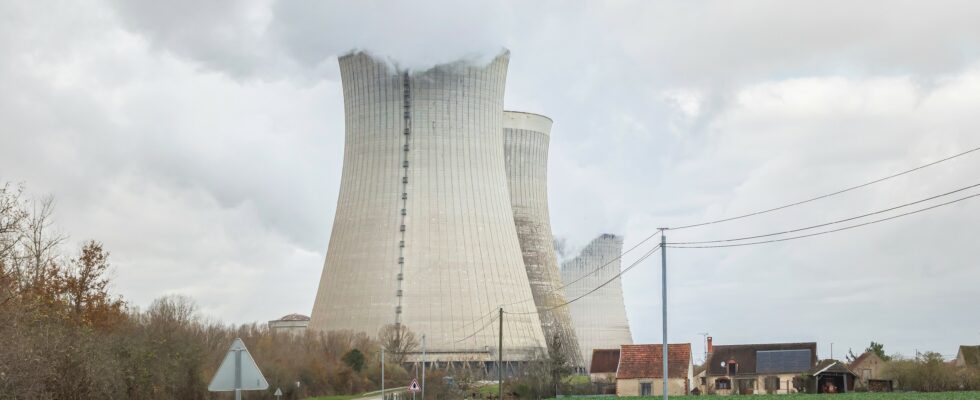Since COP28, France and the United States are among the countries to have called, this Saturday, December 2, for a strengthening of nuclear energy capacities in the world by 2050. Russia and China are conspicuous by their absence .
COP28 was the scene, on Saturday, of a joint declaration from around twenty countries, including the United States, France, and the United Arab Emirates, calling for tripling nuclear energy capacities at the planetary scale, by 2050. But the main players in the sector have voluntarily skipped signing this declaration, the objective of which is to reduce dependence on coal and gas, a major issue of the conference.
A global commitment to a nuclear future, without China and Russia, the main builders of power plants
In Dubai, where the 28th is taking placeth conference on climate change, the glass is currently only half full. Or half empty. In a significant gesture, twenty nations, including Japan, the Netherlands, Bulgaria, South Korea, Canada, Finland, the United Kingdom, Morocco, Ghana, Hungary, and others, have expressed their commitment to tripling global nuclear capacities by 2050, compared to 2020.
The initiative aims to reduce dependence on fossil fuels, and sounds like a real collective response to the climate challenge posed at this COP28. The statement was presented by John Kerry, US climate envoy, alongside French President Emmanuel Macron and Belgian Prime Minister Alexander de Croo.
But now, China and Russia, world leaders in the construction of nuclear power plants, have chosen not to join in this approach.
Nuclear power is expected to play a key role in global decarbonization
The statement highlights “ the major role of nuclear energy in achieving carbon neutrality by 2050 and in maintaining the objective of limit warming to 1.5°C “. John Kerry for his part stressed that science and facts confirm that carbon neutrality by 2050 is impossible without nuclear power. Some signatory countries, such as Romania, see nuclear power as a “ stable source of energy contributing to energy security and decarbonization “.
In addition to the call to triple capacities, the signatory countries encourage shareholders of international financial institutions, including the World Bank, to integrate nuclear power into their financing. Rafael Grossi, director general of the International Atomic Energy Agency (IAEA), emphasizes that certain institutions wrongly exclude nuclear power and adopt an approach considered obsolete by the signatories.
In any case, supporters of nuclear energy praise the modular qualities of nuclear power, as well as its almost zero greenhouse gas emissions. It is today seen as an incomparable solution for producing virtuous and abundant electricity. Even if voices are raised to warn about the risks of accidents, the very long-term problem of waste, as well as the high costs associated with nuclear power, the global energy future is a debate which, sooner or later, will have to be slice.
Source : franceinfo

23